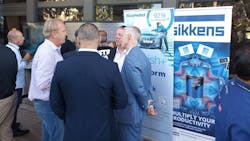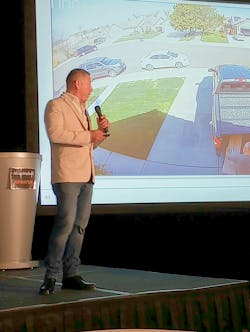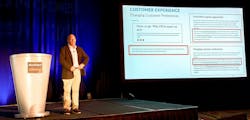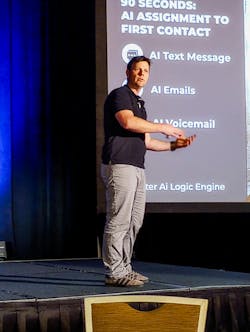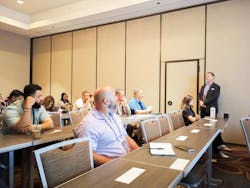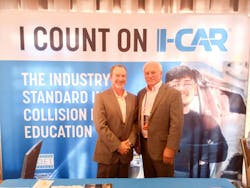Attendees Build Momentum at AkzoNobel Collision Industry Experts Event
AkzoNobel’s 2025 Collision Industry Experts Event gathered more than 360 industry professionals together to focus on one message for the remainder of the year – building Momentum.
Dan Carranza, AkzoNobel’s national sales director, Vehicle Refinishes USA-Mexico, got the Collision Industry Experts-Momentum event rolling on Wednesday, July 9, at the Hotel Fera Anaheim in Orange, California. He called attention to the struggles the industry faced over the first two quarters of the year. The pressure shops are under currently also provide opportunities for a comeback.
“The people who are losing are the people that are sitting idle, doing nothing,” he said. “We can’t control the market, but we can control what happens in Q3 and Q4 to set us up for 2026.”
David Roberts, founder and managing director at Focus Advisors, provided industry insights and highlighted the importance of speed and cycle time, which he feels will be the most important metric for shops going forward.
“The fast are eating the slow,” he said. “We believe the fastest cycle times will succeed.”
Mike Anderson from Collision Advice backed up Roberts’ claim during the final session of the conference, reinforcing that cycle time will be the number one key performance indicator shops should look at.
“Every insurance carrier I’ve been talking to has been telling me cycle time is the number one KPI,” he said. “Anyone remember the GEICO ARX days where they wanted you to fix cars in four days or less? I’m telling you, that’s what we’re going back to.”
Anderson emphasized that faster cycle time will lead to more work for shops because “if you fix the car fast for an insurance company, they will reward you with more work.”
Shops will need quick communication to complement faster cycle times. Ryan Taylor’s presentation on the applications for AI in body shops highlighted how missing a potential customer’s phone call or text message and not responding within 5 minutes has a 90% defect rate.
Additionally, 47% of customers want to do business after business hours. AI messaging systems can reduce the time it takes a shop to respond to a customer and provide responses to inquiries received after hours. Taylor used a fishing analogy for shops to reel in customers.
“How are you going to be responsive when that customer gives you a little nibble? If you need work right now and that customer is reaching out to you, are you setting the hook?” Taylor said. “The faster you set the hook the more likely you are to get that customer.”
AI also plays a role in insurance coverage for repair procedures. AkzoNobel Senior Service Consultant Tim Ronak hosted a session on negotiation strategies and warned attendees about how insurance companies employ AI to deny and push back on repair procedures that have historically been covered. They use AI to scrub the internet for any marketing materials to identify inconsistencies or information that could help them deny a claim.
“What we’re finding is AI is being used to deny and pushback repair procedures that historically they paid without any question,” he said. “The level of scrutiny and pushback is about to increase.”
Ronak’s session was titled “Win-Win Negotiation in Estimating,” but that’s not exactly how negotiations go.
“You win. They lose. That’s how I’m going to negotiate,” he said. “We’re just trying to get paid for what you need to do get that car back to pre-loss.”
About the Author
Peter Spotts
Associate Editor
Peter Spotts is the associate editor of FenderBender and ABRN. He brings six years of experience working in the newspaper industry and four years editing in Tech. He has a bachelor's degree in journalism from Western New England University with a minor in integrated marketing communications and an MBA. A sci-fi/fantasy fan, his current 2010 Honda Civic is nicknamed Eskel, after the character from the Witcher book series, for the scratch marks on its hood.
Don't miss Peter's next article. Sign up for FenderBender Today's Collision Repair News here.
